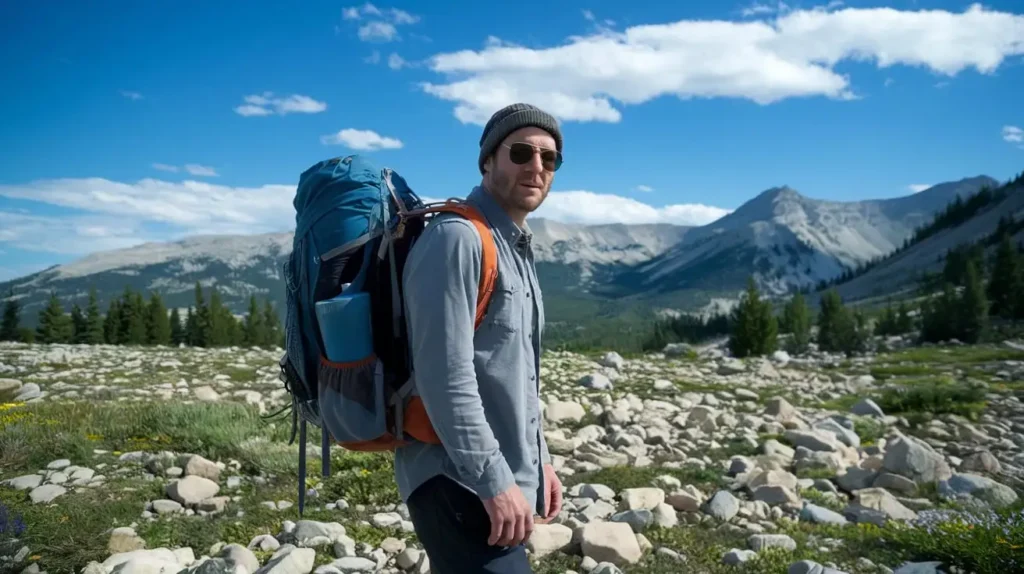Top 100 Backlink Niches for Travel Websites
Unlocking the Thrill of Travel Blogging
Starting a travel blog can be a truly rewarding venture, especially if you pick the right niche. Imagine the magic of sharing your adventures with a global audience, helping readers plan their dream vacation, and inspiring your travel tribe to explore hidden gems. By focusing on unique niches, like sustainable tourism or luxury experiences, you can attract an engaged community while opening doors to opportunities you might have only dreamt of—like partnering with cool brands or scoring free stays at premium spots.
Investing time and effort into relevant content not only creates a ripple effect by boosting local businesses and encouraging visits to lesser-known destinations, but it also builds authority in the eyes of Google. This ensures your website stays ahead of updates and earns valuable backlinks from sites in your field. Whether you’re crafting tips, uncovering hidden gems, or shaping guidebooks for wanderers, your effort will cement your blog as a good recommendation for any travel website.
Earning Travel Backlinks for Your Blog
The Power of an Influencer Round-Up Post
Creating an influencer round-up post is a smart idea to build authority and earn travel backlinks for your blog. Start by identifying travel bloggers and influencers in your niche through platforms like Twitter or direct search. Reach out via email or direct message, inviting them to share their real-life experiences or insights about specific destinations—for example, the best places to visit in Asia. When they respond, include their contributions in your post and mention their names and blogs. Most are likely to link out to your article from their websites, helping you rake in backlinks while adding a feather to your cap. Keep the process simple: craft your topic, conduct outreach, and rinse and repeat to see consistent results.
Commenting on Blogs (With Caution)
Leaving comments on blogs is another way to build backlinks, but you need to proceed with caution. Avoid spamming links; instead, focus on adding useful, relevant comments that contribute to the conversation. This can help you get noticed by both people and search engines without risking a Google penalty. Use tools like Backlink Research or SEOptimer to identify blogs with a decent quality score in your niche. A thoughtful comment on a high-authority website with a specific focus can draw attention to your blog and improve your SEO. Keep monitoring responses to ensure your efforts align with your main goal of building meaningful relationships and connections.
Reviewing Travel Products and Hotels
Writing detailed reviews of travel products and hotels is a fantastic way for a blogger to secure high-quality backlinks while adding value to their website. When you talk about products or services you’ve personally purchased or visited, your content becomes more authentic and useful to readers. To get started, pick a hotel or travel gear relevant to your blog’s niche and craft a detailed article that highlights its features, benefits, and your experience. Include references to the brand’s website, and reach out through email or other outreach methods to let them know you’ve written the review. Often, these businesses will link back to your post, especially if it positions them positively.
To improve your strategy, use tools like SEOptimer to conduct a detailed analysis of your competition and monitor which sites are linking to similar blogs. By observing the patterns and methods your competitors have tried, you can explore new avenues for link building. For example, if a competitor gains backlinks from reviewing specific travel gear, replicate the concept but with your unique voice—don’t simply copy. Consistent effort in this area will help you build strong connections and establish your blog as a trusted source in the travel space.
Becoming the Recommended Accommodation
Positioning your hotel or business as the recommended accommodation near local attractions like theme parks, museums, or sporting arenas is a smart way to earn travel backlinks. Reach out to universities, colleges, or conference organizers on their campus to offer discounted stays for families visiting kids or professionals attending events. Securing a mention on their .edu website can be a highly valuable backlink that drives traffic and increases credibility. Building partnerships with local businesses not only enhances your visibility but also strengthens your ties with the community.
Exchange a Freebie for an Influencer Review
Offering a free stay, product, or service in exchange for a review from travel influencers is another excellent strategy. Look for influencers in your niche through Twitter or other social media platforms, focusing on those with an active audience and good engagement. Send them a professional proposal via email or direct messages, detailing what your business offers and why it’s a perfect fit for their followers. An honest review on their blog or social media accounts can lead to a valuable backlink and a boost in your website’s visibility. Don’t forget to include clear information on your contact page to make this outreach process seamless.
Reclaiming Unlinked Mentions
Sometimes, bloggers or websites may mention your travel business but fail to include a link. Use tools to monitor your brand’s presence online, and whenever you find an unlinked mention, reach out with a friendly message. Politely thank them for talking about your business and kindly request that they add a link. Most will feel obliged to help if you approach them with gratitude and professionalism. This simple step ensures you’re not missing out on valuable backlinks that could enhance your site’s authority.
Best Travel Blogging Niches That Can Generate Income
Adventure Travel Niche
Adventure travel blogs are perfect for outdoor enthusiasts and adrenaline junkies seeking exciting experiences. These blogs can implement various monetization strategies, such as affiliate marketing with gear companies or featuring sponsored content for adventure products. Promoting guided tours and expeditions also opens up opportunities to collaborate with adventure tour operators. With the right focus on thrill-seekers, these blogs can attract a niche audience willing to invest in premium experiences and recommendations.
Luxury Travel Niche
If your blog revolves around luxury travel, you can attract a high-spending audience interested in high-end accommodations and exclusive destinations. This niche is ideal for forming partnerships with hotel chains or featuring sponsored stays. Affiliate marketing for luxury accessories, fashion brands, and travel gear is another effective way to monetize. Additionally, premium content or exclusive memberships for subscribers can create consistent income streams, catering to those who value curated, luxurious experiences.
Solo Travel Niche
Solo travel blogs target independent travelers who seek guidance and practical tips for their journeys. This niche allows for creative monetization methods, including selling e-books and courses on trip planning. Collaborations with tour companies to offer curated packages can further enhance revenue. Highlighting essentials through affiliate marketing links ensures these blogs provide value while maintaining steady income. With solo travel gaining popularity, this niche has untapped potential for growth.
Cultural Travel Niche
Cultural travel blogs focus on local traditions, off-the-beaten-path destinations, and immersive experiences. Monetization options include sponsored content with tourism boards or partnerships with cultural organizations. Selling unique merchandise, such as locally crafted handicrafts, adds another revenue stream. Promoting immersion tours through affiliate collaborations can engage an audience that values meaningful connections and deeper travel experiences.
Budget Travel Niche
For those seeking cost-effective experiences, budget travel blogs deliver essential tips and hacks. Monetize through affiliate marketing for budget-friendly products, or use ad platforms like Google AdSense to earn passive income. Selling guides or online courses tailored to budget travelers helps establish the blog as an indispensable resource. This niche thrives on practical advice that resonates with a wide audience, from students to frugal families.
Food and Travel Niche
Food and travel blogs combine culinary explorations with unique experiences, making them ideal for various monetization avenues. Collaborating with restaurants and food-related brands for sponsored content adds credibility and revenue. Promoting cooking utensils, meal delivery services, or hosting culinary events and workshops can further enhance income. With a growing audience for food-inspired journeys, this niche can consistently attract readers passionate about global flavors and travel.
5 Efficient Ways to Monetize Travel Blogging Niches
Affiliate Marketing
One of the easiest ways to start earning through your travel blog is by partnering with trusted brands to promote products or services using affiliate links. Whether it’s travel gear, hotel bookings, or insurance, including these links in your blog posts or sharing them on social media can generate steady income through commissions. The key is to ensure that the products align with your niche and provide genuine value to your audience.
Sponsored Content
Collaborating with brands or tourism boards to create sponsored posts is a popular way to monetize. This can include detailed reviews of travel-related items or personalized endorsements in exchange for payment or free services. For instance, a brand may sponsor a trip or provide products for you to showcase in your blog. Highlighting these in an authentic way builds trust while earning income.
Advertising and Display Networks
Adding advertising through display networks like Google AdSense or Media.net is another effective method. These display ads generate revenue based on clicks or impressions, allowing your blog to earn passively as traffic increases. While this method requires consistent web traffic, it complements other monetization strategies seamlessly.
Digital Products and Services
For bloggers with a creative edge, creating and selling digital products like e-books, courses, or detailed travel guides can engage your audience while generating income. Offering personalized travel planning services is another option for connecting with readers and offering them value beyond blog posts. Digital products often have higher profit margins and require minimal ongoing effort after the initial setup.
Events and Workshops
Organizing travel-related events or workshops gives your blog a tangible element. You could host immersive experiences like guided tours or cultural workshops, allowing readers to connect in person. By charging participation fees, you can generate income while offering meaningful interactions that solidify your presence as an expert in your niche.
Is the Travel Niche Saturated for New Bloggers?
The travel niche is undoubtedly competitive, with an abundance of travel bloggers, vloggers, and influencers creating content about popular destinations and common travel experiences. At first glance, it might seem crowded, but opportunities abound for those who bring unique perspectives and cater to niche-specific interests. By targeting specific audiences, new bloggers can still thrive in this dynamic space.
Specialization Can Make You Stand Out
Focusing on a specific niche, such as sustainable travel, solo female travel, budget travel, or adventure travel, allows bloggers to stand out in a sea of generalized content. By narrowing your focus, you can create specialized content that caters to a particular audience, building trust and loyalty. For example, a blogger sharing tips for luxury travel experiences can attract readers seeking premium services, while another covering sustainable travel will appeal to eco-conscious travelers.
Exploring Unexplored Destinations
Another way to succeed in a crowded travel niche is by highlighting lesser-known or off-the-beaten-path destinations. These underrepresented locations offer a chance to create unique travel content that attracts a niche audience. Sharing insights into unconventional travel experiences or showcasing not-so-spoken-about corners of the world allows you to build a distinctive brand. Exploring new horizons can also open doors to monetizing through partnerships with tourism boards keen on promoting these areas.
Build Your Personal Brand
A strong personal brand sets successful travel bloggers apart. By cultivating a unique voice, authentic storytelling style, and showing your expertise, you can differentiate yourself from the competition. Your audience will connect with the genuine connection you establish, especially in a market where saturation often stems from repetitive or surface-level content. Authenticity and personality are key to standing out.
Prioritize Content Quality
In a competitive niche, in-depth, well-researched content paired with high-quality visuals can make all the difference. Move beyond the surface level by providing deeper insights and sharing authentic experiences. Readers are drawn to blogs that offer meaningful information and real value. Investing time into creating such content helps carve out your unique space in the crowded field of travel blogging.
While the travel niche is saturated, focusing on emerging trends, unexplored topics, and delivering value to your audience ensures that you can still thrive. The balance lies in offering valuable content and consistently adapting to the evolving world of travel.
Top 100 Backlink Niches for Travel Websites: A Strategic Approach to Finding Your Travel Blog Niche
Finding the right travel blog niche requires careful thought and a step-by-step guide that aligns with your interests, expertise, and what your audience wants. The vast realm of travel blogging niches offers endless possibilities, but success lies in refining your focus and understanding your target. Below, we break down the essential steps to uncover your niche while keeping backlink opportunities in mind.
Self-Assessment: Start with What You Know
Your first step is a self-assessment to evaluate your passions, experiences, and expertise. Think about the unique travel experiences you’ve had or any specialized knowledge you bring to the table. This exercise helps you pinpoint a key feature of your blog, forming the basis of your niche. For example, if you’ve had extensive experience with accessible travel, this can become your focus. Ask yourself: What do I love to explore, and what am I confident writing about?
Research Trends and Analyze Gaps
Once you know your interests, investigate current trends in the travel industry. Look for emerging interests or underserved areas within the travel niche. Use tools like Google Trends or forums to uncover gaps in existing travel content. For example, topics like van life or cultural immersion might reveal niche opportunities that are not yet oversaturated. Stay informed to discover the perfect balance between trending and timeless topics.
Audience Analysis: Cater to Their Needs
Understanding your target audience is critical. Are you writing for families, solo travelers, or luxury travelers? Explore their needs, interests, and pain points. For instance, digital nomads may seek insights on co-working spaces, while adventure enthusiasts might crave guides to unexplored hiking trails. Tailor your niche to address these aspects directly. This not only builds a dedicated audience but also opens up backlink opportunities in diverse travel blogging niches.
Narrow Your Focus
Now it’s time to refine your niche. Explore sub-niches like sustainable travel, food and travel, or accessible travel that align with your interests and audience preferences. A specific focus makes your blog stand out and attracts partnerships with businesses or organizations in those fields. For example, a cultural immersion blog could collaborate with local tourism boards for unique backlinks.
Highlight Uniqueness and Authenticity
What sets your blog apart is your unique perspective and authentic voice. Share personal experiences and adopt a fresh approach to topics that may otherwise seem familiar. This builds trust with your readers and differentiates you from others in the field. For instance, presenting your take on accessible travel through your lens can add an authenticity that’s hard to replicate.
Consider Viability and Longevity
Before settling on a niche, evaluate its viability and potential for longevity. Does it have enough scope for continuous content creation and audience engagement? For instance, a blog focused on sustainable travel offers vast opportunities to cover eco-friendly practices, accommodations, and tips, ensuring growth in the long run.
Test, Refine, and Evolve
Finally, adopt a mindset of testing and flexibility. Launch with a refined focus but be ready to adapt based on feedback and audience response. If your initial niche feels too narrow, you can evolve it to include related topics. This experimentation allows you to hone your niche while building an engaged community.
Balancing your interests, audience needs, and market opportunities ensures your travel blog doesn’t just stand out but thrives in a crowded landscape. Whether your focus is on cultural immersion or digital nomadism, consistent exploration and refinement are key to success.
Are Travel Blogs Still Profitable?
Travel blogs can still be highly profitable if approached strategically. Success comes from combining effective digital marketing, strong social media engagement, and well-executed travel SEO practices. The landscape may be competitive, but leveraging the right tools and diversifying monetization avenues can turn a blog into a steady income source.
Social Media for Travel Blogging Niches
Social media is one of the best ways to engage audiences and showcase visually stunning travel experiences. Platforms like Instagram, Facebook, Pinterest, and TikTok are perfect for sharing visual content, offering travel tips, and highlighting exciting destinations. These efforts not only attract followers but also help to retain their interest over time, growing your influence within the niche.
Building a loyal community is equally important. By running contests, encouraging user-generated content, and consistently responding to comments, travel bloggers can foster brand loyalty. A strong community increases engagement and gives readers a reason to keep coming back.
Partnering with influencers in the travel niche is another effective strategy. Whether through collaboration with micro-influencers or larger personalities, these partnerships can amplify content and bring in new audiences through trusted travel recommendations.
Travel SEO for Blog Monetization
Effective Search Engine Optimization (SEO) is critical to any travel blog’s profitability. Start by optimizing blog content with relevant keywords, engaging meta descriptions, and high-quality images. A blog that offers valuable, comprehensive information about destinations, travel tips, and experiences is more likely to rank high on search engines, driving organic traffic.
A strong link-building strategy is equally vital. Focus on building high-quality backlinks from reputable travel sites or directories. Tactics like guest posting, collaborating with industry influencers, and contributing to established travel blogs can significantly improve your blog’s credibility and visibility.
Monetization Through Traffic
As your blog’s search engine rankings improve and organic traffic grows, monetization opportunities multiply. Popular methods include affiliate marketing, where bloggers recommend travel-related products, accommodations, or services using affiliate links. This approach generates commissions whenever readers make purchases based on your recommendations.
Sponsored content is another lucrative option. By collaborating with brands or tourism boards, you can create sponsored posts, reviews, or endorsements in exchange for payment or services. Additionally, selling digital products like e-books, courses, or travel guides that align with your audience’s interests can provide a consistent revenue stream.
Profitability in a Competitive Landscape
The travel blogging landscape is undeniably competitive, requiring a well-thought-out digital marketing strategy and a commitment to social media engagement.
Combining effective SEO practices with diversified monetization avenues can make your blog profitable over time. Success lies in consistent effort, staying in tune with your audience, and adapting to evolving digital trends or algorithm changes. With the right focus, even in a crowded market, your travel blog can thrive.

What Makes Bloggers Stand Out in Travel Niches?
In the competitive world of travel blogging, bloggers set apart themselves by bringing a unique voice and sharing personal experiences that resonate with their audience. For instance, while traveling to a remote island, a blogger can incorporate personal anecdotes about connecting with locals, tasting authentic food, and navigating unfamiliar terrain. This storytelling style evokes emotions and establishes a stronger connection with the audience, making the content memorable and relatable.
Beyond personal touches, bloggers who demonstrate specialized knowledge in a specific travel niche—like adventure travel or sustainable tourism—quickly gain credibility. Their niche expertise enables them to create in-depth guides, offering readers unique insights that position them as authorities in the field. This combination of deep knowledge and relatable storytelling fosters trust, keeping readers coming back for more.
The fresh approach of combining original and innovative content is another way for bloggers to thrive. Using creative storytelling, interactive maps, or visually stunning photography, they can captivate audiences and elevate the work quality of their blogs. Such originality in content attracts backlinks and makes the platform stand out among other travel blogging niches, often turning the blog into a profitable niche venture.
Equally important is engagement and community building, where bloggers actively respond to comments and engage in discussions. By fostering a community, they cultivate a loyal follower base that feels valued. Readers who experience this genuine interaction are more likely to trust recommendations and share content, extending the blog’s reach organically.
Consistency is the foundation for building trust with an audience. High-quality and reliable content, whether through tips, insights, or destination reviews, ensures that bloggers remain go-to sources within their niche. Regular publishing schedules and thorough research help in maintaining a professional image that audiences rely on.
Some bloggers also specialize in narrow sub-niches like eco-tourism or solo travel, which allows them to effectively cater to a specific audience. By addressing precise needs or interests, they not only stand out but also build an engaged audience base that relates deeply to their content.
Lastly, partnering with brands, influencers, or even local communities enhances visibility and credibility. Such collaborations bring diversity and add value to the content, while also opening up new monetization opportunities. Staying adaptable and embracing changing trends like new social media features or innovative content strategies ensures that these bloggers remain relevant and resilient in a fast-evolving landscape.
Promoting Luxury Travel Blogs to High-End Travelers
The luxury travel niche is designed for high-end travelers who are always seeking exclusive and premium travel experiences. To promote luxury travel blogs effectively, it’s essential to highlight what makes luxury truly special and deliver content that appeals to this sophisticated audience.
Focusing on exclusive experiences is key. Highlight luxurious accommodations, such as private villas, five-star resorts, or boutique hotels. Include details about fine dining experiences with award-winning chefs, VIP services like private chauffeurs, and lavish destinations that are unique and indulgent. Emphasizing such opulent travel options caters to discerning travelers looking for something extraordinary.
Using high-quality visuals is equally crucial. High-resolution images and immersive videos can showcase the grandeur of luxurious destinations and their amenities. Whether it’s the intricate design of a suite or the stunning view from a private infinity pool, the visual appeal must convey the extravagance and allure of luxury travel.
Creating compelling content with rich detail ensures readers are hooked. Share in-depth insights into luxury hotels, upscale dining, and exclusive experiences. Offer insider tips, such as how to book the best room or access private tours. Including behind-the-scenes glimpses of these luxurious offerings gives readers a sense of exclusivity.
For greater visibility, implement targeted SEO strategies by optimizing content with relevant keywords that resonate with affluent travelers. Using long-tail keywords like “luxury honeymoon destinations” or “private yacht charters” helps attract readers who are actively seeking luxury content.
Social media platforms like Instagram and Pinterest are ideal for promoting luxury travel blogs. These platforms let you showcase luxurious destinations through stunning visuals while engaging a sophisticated audience. Collaborating with luxury brands and influencers can further expand your reach and boost credibility in the travel niche.
Email marketing is another powerful tool to reach high-net-worth individuals. Sending personalized emails with exclusive deals, insider tips, and curated itineraries tailored to specific preferences fosters a direct connection. Subscribers appreciate the attention to detail and personalized touch.
Collaborating with luxury hotels, resorts, and travel agencies is a win-win strategy. Sponsored stays, reviews, and exclusive offers not only enhance your blog content but also open up opportunities for cross-promotion with established luxury brands.
Finally, maintaining a refined brand identity is essential. Every aspect of your blog, from the tone of writing to the visuals, should exude elegance. Consistency in branding builds trust and aligns with the expectations of high-end travelers, ensuring they see your blog as a trusted source for exceptional experiences.
7 Key Takeaways for New and Existing Content Creators
When diving into the vast universe of travel blogging niches, it’s important to find your unique voice and focus on what excites you. Discover your passion by exploring topics that truly spark your interest, whether it’s offbeat destinations or adventure tourism. This passion fuels engaging content, making your stories more authentic and relatable to readers.
A well-defined niche is key to standing out in a competitive field. Whether it’s local culture, sustainable tourism, or breathtaking visuals of unique destinations, focusing on a specific topic lets you provide valuable information that resonates with your audience. Instead of covering everything, narrow your focus to something you genuinely enjoy and can deliver with depth and quality.
Creating content is not just about quantity but about crafting compelling narratives that inspire and inform. Combine well-researched facts with personal experiences, and pair them with breathtaking visuals to give your audience a reason to keep coming back. Authenticity and substance triumph over flashy but shallow posts, so ensure your work adds real value.
Building a loyal community is vital for content creators. Engage with your readers on social media, respond to comments, and participate in forums or other spaces where your audience gathers. Foster connections by sharing experiences, answering queries, and maintaining an open and approachable persona. These interactions help create a bond of trust and loyalty.
Always stay curious and ready to evolve. The content creation landscape evolves quickly, with new trends, technologies, and methods emerging all the time. Embrace curiosity and keep yourself updated by experimenting with innovation. Adaptability and a willingness to grow can help you remain relevant and successful in the long run.
Success doesn’t happen overnight. It takes time, effort, and consistent work to build an audience and earn credibility. Be patient, persistent, and committed to your craft. With dedication and a steady approach, your efforts will lead to meaningful growth and opportunities.
Finally, stay ethical and respectful in all your work. As a travel influencer, prioritize responsible and ethical content creation by respecting local cultures, environments, and the communities you explore. Genuine care for these aspects ensures that your content not only inspires but also promotes positive change.
Top categories and sub categories For Getting links from travel niches
| Category | Sub-Niches |
|---|
| Adventure Travel | Adventure Travel, Wildlife Travel, Safari Tours, Adventure Sports, Water Sports, Cycling Tours |
| Luxury Travel | Luxury Travel, Luxury Cruises, Expedition Cruises, Boutique Hotels, All-Inclusive Resorts |
| Cultural Travel | Cultural Tourism, Religious Pilgrimages, Cultural Festivals, Music Festivals, Heritage Sites |
| Historical Travel | Historical Travel, Archaeological Tours, Historical Reenactments, UNESCO World Heritage Sites |
| Culinary Travel | Culinary Travel, Food Tours, Wine Tourism, Local Cuisine Experiences, Travel for Foodies |
| Nature & Eco-Tourism | Eco-Tourism, Sustainable Travel Practices, Desert Travel, Island Hopping, Diving Destinations |
| Wellness & Relaxation | Wellness Retreats, Spa Travel, Yoga Retreats, Wellness Cruises, Wellness on the Go |
| Seasonal Travel | Winter Travel, Summer Travel, Spring Travel, Fall Travel |
| Family & Group Travel | Family Travel, Couples Travel, Group Travel, Adventure Destinations for Families |
| Unique Stays | Glamping, Farm Stays, House Sitting, Historic Hotels, Rural Escapes |
| Specialty Travel | Accessible Travel, LGBTQ+ Travel, Travel for Health Conditions, Digital Detox Travel |
| Transportation | Road Trips, Scenic Rail Journeys, Luxury Train Travel, Budget Airlines, Travel Rewards Programs |
| Urban & City Travel | Urban Exploration, City Breaks, Urban Staycations, Accommodation Reviews |
| Outdoor Adventures | Camping and Hiking, Mountain Travel, Ski and Snowboard Travel, Ski Resorts |
| Festivals & Events | Sports Tourism, Cultural Festivals, Music Festivals |
| Travel Gear & Tech | Travel Gear and Equipment, Adventure Gear, Travel Technology, Travel Apps |
| Safety & Planning | Travel Safety Tips, Travel Health and Safety, Travel Insurance, Packing Tips |
| Content Creation | Travel Blogging, Travel Vlogging, Travel Photography, Destination Guides |
| Hidden Gems | Hidden Gems, Off-the-Beaten-Path Destinations, Cultural Immersion |
| Other Niches | Travel Shopping and Souvenirs, Travel Deals and Discounts, Travel Trends, Language Learning for Travelers |
Conclusion
Travel blogging niches open up a kaleidoscope of opportunities for aspiring and existing creators alike. Whether your focus is on eco-tourism, culinary explorations, or luxury escapades, there’s an audience captivated by the allure of well-crafted stories and authentic experiences. The digital landscape is brimming with chances to pursue your passions and connect with others who share your interests. By intertwining storytelling with stunning photography that captures fleeting moments, you can create compelling narratives that resonate deeply with your readers.
What is a travel blogging niche, and why is it essential?
A travel blogging niche refers to a specialized area within the travel industry that a blogger focuses on, such as luxury travel, adventure tourism, or cultural exploration. Choosing a niche is vital because it helps you stand out in a competitive field and allows you to cater to specific audiences with unique interests.
How do I choose the right travel blogging niches for me?
Start by identifying your passions and expertise. Think about what excites you most—whether it’s unique experiences like eco-tourism or adventure sports. Understand your audience’s preferences and explore areas where you have specialized knowledge. The ideal niche should align with your strengths and resonate with your audience.
Can I focus on multiple travel niches in my blog?
Yes, but it’s crucial to avoid diluting your brand. It’s generally more effective to build authority and loyalty within one niche. However, some successful bloggers have blended related niches like food and travel or adventure and eco-tourism to reach a broader audience.
How do I research and identify untapped travel blogging niches?
Conduct thorough market research to discover less-covered destinations or activities. Analyze audience interests, study emerging trends, and engage with travel communities. For example, accessible travel, slow travel, and wellness retreats are niches with untapped potential.
How can I stay updated within my travel niche?
Stay informed by following industry blogs, attending webinars or conferences, and engaging with audience feedback. Regularly research emerging trends and monitor developments within your niche to ensure your content remains relevant and valuable.
Is it necessary to stick strictly to my chosen travel blogging niches?
Being consistent helps you build authority, but occasional experimentation can keep your blog fresh and engaging. For example, adding related content or covering a new angle within your niche can attract a wider audience while keeping your primary focus intact.
How can I maintain authenticity while catering to a niche audience?
Authenticity is key to building trust. Share genuine experiences, offer honest recommendations, and maintain transparent communication. Connecting personally with your audience through real and relatable content ensures long-term engagement.
What tools or resources can help me understand and develop my travel niche?
Leverage tools like Google Trends, SEO analytics, and social media insights to track niche performance. Networking with fellow bloggers and participating in the travel community can provide valuable insights and guidance to refine your approach.
Can I combine different travel niches in my content?
Yes, combining niches like adventure travel with eco-tourism or food travel with cultural experiences can offer a unique perspective. This approach helps you cater to diverse interests while appealing to a broader audience.
How can I monetize a niche travel blog effectively?
Effective monetization strategies include affiliate marketing, sponsored content, and selling digital travel products. You can also offer premium content or provide specialized services tailored to your niche audience.
What role does SEO play in a niche travel blog?
SEO is essential for improving your blog’s visibility on search engines. By optimizing content with relevant travel keywords, you can drive organic traffic to your blog, attract a larger audience, and grow your influence within your niche.
Can a micro-niche within a broader travel niche be successful?
Absolutely! Micro-niches like accessible travel or wellness retreats can cater to targeted audiences seeking specific information. Bloggers in these areas often become authoritative sources in their specialized fields.
How can I overcome challenges within a competitive travel niche?
Focus on quality over quantity, collaborate with industry experts and influencers, and stay adaptable. Innovative content strategies and a willingness to evolve with changing trends are essential to overcoming challenges.
Is it essential to be an expert in my chosen travel niche?
While expertise helps, what truly matters is your genuine passion and curiosity. A willingness to learn and share your experiences can establish credibility over time and resonate with your audience.
How important is audience engagement in a niche travel blog?
Audience engagement is crucial for building a community. Interacting with readers through comments, social media, and forums fosters loyalty and creates a vibrant, interactive ecosystem for your blog.
What makes a niche travel blog successful?
Success comes from providing valuable, unique, and consistent content, engaging with your audience, staying updated on trends, and effectively monetizing your work using diverse strategies.
Can I change my travel blogging niches later?
Yes, but it’s essential to pivot strategically. Gradually introduce new content and clearly communicate the change to your audience to maintain engagement and trust.
How do I differentiate myself in a competitive travel niche?
Offer a unique angle, such as personalized travel experiences, authentic stories, or innovative content formats. Showcase niche-specific expertise and engage your audience with a standout approach.
Are some travel niches more profitable than others?
Certain niches like luxury travel or family travel can be more profitable due to higher spending audiences. However, profitability depends on audience engagement, monetization strategies, and content quality.







